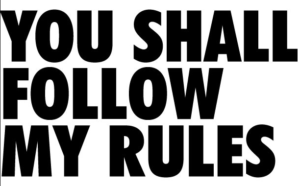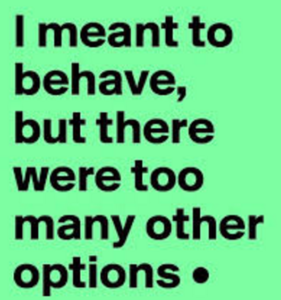
Tenants That Do Not Pay On Time
Every landlord gets stuck with at least one tenant that does not pay on time. Tenants that do not pay on time need to be dealt with consistently so that they know you mean business.
This tenant may have started out as a great paying tenant but for whatever reason stopped paying on time. Common excuses include a lost job, a death in the family, a car broke down or wrecked, someone stole my money, etc.
Then there are the tenants who I call the “scammers”. They seem great. They have a few bumps in their credit but nothing terrible. They come in, sign the lease, pay the first month’s rent and then never pay on time again. Tenants that do not pay on time will drive you crazy if you let them.
Every landlord gets stuck with at least one tenant that never seems to pay on time. Click To Tweet

Remember, You Dictate Your Rental Policy
How you handle the first late payment will dictate how your tenant behaves in the future. Whether the tenant calls you to tell you he is paying late or you just figure it out when the rent doesn’t come, it doesn’t really matter. The reason the payment will be late is not important because the bottom line is you aren’t getting your money on time which is never good.
On a side note, if you have a house payment on your rental, you always need to have an emergency fund for just these instances so that you can make your payment on time even when you have tenants that do not pay you on time.
Stop Saying These Things
 I want you to erase the following phrases from your vocabulary when dealing with a late paying tenant:
I want you to erase the following phrases from your vocabulary when dealing with a late paying tenant:
- That’s ok.
- Pay when you can.
- Catch up when you can.
- Not a problem.
- I understand.
- No worries
- Any other phrases that indicate you are ok with the tenant paying late.
I used to say “That’s ok. When can you pay?” in a very friendly, it’s no big deal kind of tone. Guess what?
That is all wrong!
It is never OK for the tenant to pay late. The tenants that do not pay on time love to hear you say that!
Don’t get me wrong, it’s great that he is calling me but I used to have to actually stop myself every time I started to make it sound like it was acceptable for the tenant to not pay on time.
If you make it OK for a tenant to pay late, why should the tenant pay on time?
If you have trouble with being too nice, practice saying something like: “I’m sorry to hear that. What date will you be paying?”
When they tell you the date, say “Give me a second. I need to write that date down and then I will tell you how much your late fees will be so that you can include them in the rent.”
If you make it OK for a tenant to pay late, why should they pay on time? Click To Tweet
You don’t have to be mean or rude but you don’t want to sound happy that they will be paying late. I know someone that would get so nervous when someone couldn’t pay on time that she kept a list of what I call “approved phrases” next to her on the desk so she wouldn’t say “OK”. Do what you have to do!
Ask Questions
If the tenant explained why he is paying late, I will ask if he will be able to pay on time next month. That is a valid concern, especially if he can’t pay this month’s rent until the middle or end of the month. If he says yes, I let it go and say great!
If he says no or isn’t sure, then ask questions! What is his plan is in the future for paying on time next month. If he has lost his job, ask if he has any family members or friends that can help him out. Recommend that he contacts locate agencies to help him pay his rent. I keep a list of agencies that have helped out our tenants before and pass those on to anyone that needs them.
I used to be too timid to ask these kinds of questions and I get it if you are. It is much easier to say “Ok” and not ask any questions. It’s not like you can make him pay you, right?
Don’t fall into this trap! I hear this stuff all the time from landlords. Do not worry that you will offend or upset the tenant. Tenants that do not pay on time may need some help but you have the right to know how they intend to pay or get help.
I understand that you may not want to “confront” the tenant or make him mad or don’t feel right asking those questions. Remember, this is YOUR house! By not asking questions and making your tenant answer to you, you allow the tenant to run your business instead of the other way around.
Stick To Your Rules
Do not change the way you do business just because your tenant can’t or won’t follow your rules! Get rid of that tenants that do not pay on time and find another one who will follow your rules and actually pay on time.
I have to laugh sometimes because you do run across the occasional tenant who apparently didn’t actually listen while I was explaining the lease terms and he has the nerve to act completely shocked and insulted that you are going to charge late fees.
Explain Yourself
If you are asked why you are charging late fees, remind your tenant that the lease he signed explains the late fees and the eviction policy. There is always one in the bunch that has the nerve to get angry and wants to argue with you. Don’t go there. One of your tenant’s jobs is to pay the rent on time! It is not your problem if he can’t.
Should You Waive Late Fees
Be careful with waiving late fees. You will have to decide what your policy is on this and I have heard lots of different opinions on this subject. Late fees were created for a reason and if you waive them all the time, your tenants will start to think it is ok to pay late. Yes, paying extra money may put them in a bind but again, that is not your problem. If you have tenants that do not pay on time, they will continue to be late if there are no consequences that hurt.
We would consider waiving late fees for a tenant that has always paid on time and has been then for at least a year. But, waiving late fees during the first year is a bad idea and will just increase the chances that the tenant won’t pay on time in the future because you were so nice the last time.
 Eviction Policy
Eviction Policy
Your lease should spell out the late fees and the eviction policy for tenants that do not pay on time or at all.
- The first step in this instance is to send the 7 day letter using regular mail and certified mail.
- Then on the 8th day, the eviction can be called in and a court date will be given.
- At the court date, a judgement will be entered.
- Tenant will then have 8 days to pay or move out.
- After 8 days have passed, you can have the paperwork sent over to the sheriff.
- Once the sheriff has the paperwork, a set out date can be scheduled.
- If tenant doesn’t move out, schedule the set out.
- Arrive for the set out and remove the tenant’s belongings.
Don’t Accept Rent Money
Do not accept any money from the tenant during this process because you will need to start the entire process over if you do. It can be hard to turn down money from a tenant and you will have to decide if it is worth accepting the money.
- If you want the tenant gone, do not accept any money.
- If you want to teach the tenant to pay on time, accept the money, just this one.
 Will They Toe The Line?
Will They Toe The Line?
There will be tenants that completely freak out over the 7 day letter and will never pay late again. Others will be a little more savvy and will just shrug and test you. By following the process, they will learn that you mean business. Demonstrating to a tenant that does not pay on time, that you are willing to follow through and actually evict them may also make them more willing to follow your rules and pay on time.
You will also find that there will always be the tenant who doesn’t have any intention of paying on time and this type of tenant just needs to find a new place to live.
Only you can decide if you want to work with this tenant or not. If you don’t just follow the process and the tenant will either move out or you can set him out.
Before you ever need to get rid of tenant, you need to talk to an eviction attorney in your area. I cannot emphasis enough how important it is to know the laws in your area. The laws can vary wildly from one area to the next. The last thing you need is to do it wrong and have to start over again.
Dealing with problem tenants is part of my job. Having to deal with the tenant that can’t pay on time is never fun but if you have a policy in place for dealing with them, it does make your job easier. I have learned the hard way over the years how important consistency is when dealing with tenants.
Use Forms To Run Your Business

Tired of getting bad tenants?
Can’t remember which questions to ask?
What to pre-screen like a pro?
Grab the free Tenant Screening Form
